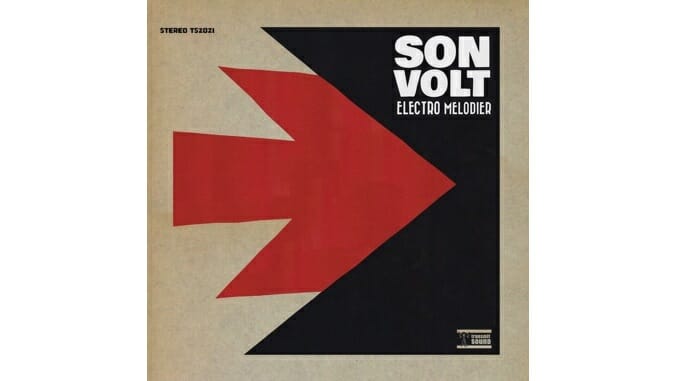Son Volt Find Glimmer of Hope on Electro Melodier
Leader Jay Farrar still honing his craft on band’s 10th album

Jay Farrar has long had a reputation as a morose guy with a fondness for inscrutable, impressionistic lyrics. That’s only half right. In reality, the Son Volt singer is simply self-contained. He doesn’t have a public persona, or much of a social media presence. Farrar is focused instead on writing songs that say what he wants them to say, and then letting them stand on their own. And while he’s written some downer tunes, particularly when he was wrestling with youthful cynicism early in his career, there aren’t as many of those as you might think from the sound of his preternaturally weathered, lived-in voice. In fact, these days, there’s often a hopeful current running beneath the surface. In his low-key way, Farrar has become a quietly radical idealist.
Even amid the lingering chaos and cruelty of the Trump years, a global pandemic, and protests and unrest in response to the ever more visible framework of structural racism in America, Farrar sees cause for a measure of optimism on Electro Melodier, Son Volt’s 10th album. He’s a believer in grassroots, bottom-up solutions that involve people working together, a notion that recurs in Son Volt’s latter-day work. He makes the idea explicit on “Living in the USA,” a centerpiece of the new album that catalogs the contradictions inherent in 21st-century America, from the dark money and fear-mongering that undermine the system to the resilience of those fighting for a better, more equitable nation. “Power invested in people, let the ideas shine,” Farrar sings over a bed of acoustic guitar topped with overdriven electric guitar licks and a steady beat.
Elsewhere, there’s a sense of change in the air as people in the street push back against authority on “The Globe,” a sturdy roots-rocker with a Moog synth part in the middle that recalls The Who’s “Won’t Get Fooled Again.” “Someday Is Now” finds “players of the long con” getting toppled for their perfidy, and Farrar intones the lyrics with a stern gravitas, accompanied by hard-strummed acoustic guitar and foreboding electric licks. Midway through, the song kicks into a different gear, as if the band turned onto a straightaway and buried the accelerator.